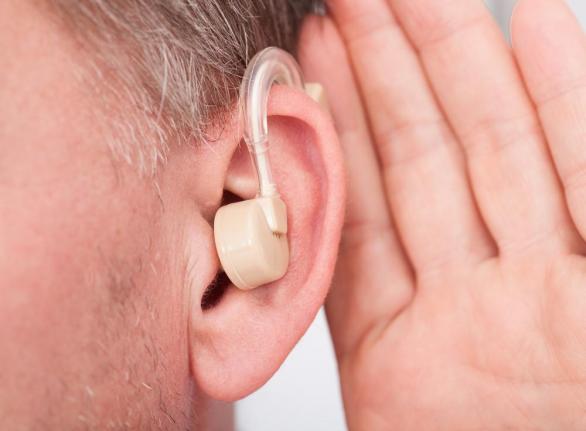-
Tips for becoming a good boxer - November 6, 2020
-
7 expert tips for making your hens night a memorable one - November 6, 2020
-
5 reasons to host your Christmas party on a cruise boat - November 6, 2020
-
What to do when you’re charged with a crime - November 6, 2020
-
Should you get one or multiple dogs? Here’s all you need to know - November 3, 2020
-
A Guide: How to Build Your Very Own Magic Mirror - February 14, 2019
-
Our Top Inspirational Baseball Stars - November 24, 2018
-
Five Tech Tools That Will Help You Turn Your Blog into a Business - November 24, 2018
-
How to Indulge on Vacation without Expanding Your Waist - November 9, 2018
-
5 Strategies for Businesses to Appeal to Today’s Increasingly Mobile-Crazed Customers - November 9, 2018
Avoiding Hearing Loss Treatment Can Lead to Depression
Hearing loss is undertreated among adults, despite evidence that hearing aid technology can reduce depression and anxiety and improve cognitive functioning, according to a presentation at the American Psychological Association Annual Convention. Findings are based on a study which involved more than 2.300 people who were facing hearing loss issues and experts found that those who don’t wear hearing aid are 50% more likely to suffer from sadness and depression.
Advertisement
Myers suggests that modern hearing aids, including those that are compatible with smartphones and hearing loop technology, can be used to help sufferers to become more socially active.
“Anger, frustration, depression and anxiety are all common among people who find themselves hard of hearing”, Dr. David Myers, a psychology professor at Hope College in Michigan, stated in a press release.
It brings forth an unfortunate loss of control of their own lives, an impression that can be fixed through hearing aids, but a good majority refuse and then lose the chance of emotional stability or healthy cognitive functions.
Those who are not addressing hearing loss problems are at high risk to develop dementia and depression.
Dr. Myers revealed most people with hearing disabilities wait up to six years after noticing symptoms of hearing loss before seeking medical attention because they are largely not sure of the path to take nor how they will be perceived.
Although a genetic condition caused him to start losing his hearing as a teenager, Myers did not get hearing aids until he was in his 40s. Millions of people battle the issue of hearing impairments silently, disregarding the unfortunate fact that they’re gradually losing one of their senses. But they may also be in denial of their condition, have too much vanity, or simply be unaware of how much the condition is affecting their hearing.
One in every three American adults from 65 to 75 has hearing loss to some extent whereas individuals older than them frequency increases to one in every two people, according to Mayo Clinic. The risk of developing dementia was considered to have a link to hearing loss.
The hearing loop system is a method which proved to be very helpful for hearing loss.
Hearing loop technology has been gaining ground in the U.S recently.
The latest to help is loop technology that acts like Wi-Fi and transmits sound signals directly into the hearing aid of the hard hearing people.
Advertisement
The system enables hearing aids to serve as wireless speakers and is particularly effective in areas where there is typically a lot of background noise or reverberant sound, such as train stations and auditoriums.





























